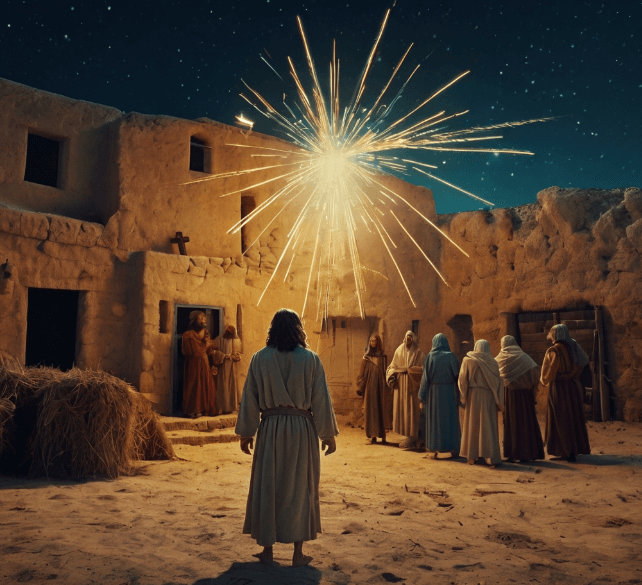One of the most striking yet elusive issues concerning the birth of Jesus is the question of Bethlehem versus Nazareth. While Jesus was born in Bethlehem, his virgin mother Mary and stepfather Joseph were natives of Nazareth.
How then did they find themselves so far from home in an overcrowded city with no room at the inn? Why has this transition from Nazareth to Bethlehem been so widely discussed?
Beginning with the earliest Gospel account, Mark 1:9 states that Jesus came from Nazareth of Galilee; He is also referred to repeatedly as “Jesus of Nazareth,” even though long-ago prophecy heralded his birth in Bethlehem. Let’s take a look at Jesus’ birthplace, Bethlehem, and compare it with Nazareth and then explore some reasons Bethlehem still resonates with Christians today.
The Birth of Jesus and His Birthplace The background behind Jesus’ birth is presented in Matthew 2 and Luke 2. When Emperor Caesar Augustus declared a census, Joseph and Mary came from Nazareth to Bethlehem to register. Because Joseph was a lineal descendant of David, he was obligated to enroll in Bethlehem, the registry center of his ancestor.
Luke 2:4-7 says that Mary gave birth to Jesus, wrapped him, and laid him in a manger-a humble trough for feeding animals. From this context, it is clear that Jesus’ birth took place outside the inn among the animals. Though he was a “King of Kings” and “Son of the Highest,” he was born in the most humble surroundings.
How Does Prophecy Factor In? In Micah 5:2, Micah prophesied that the Messiah was to be born in Bethlehem. Old Testament passages bring light to Jesus as the King of the Jews and ruler in Israel, emphasizing his redemptive role.
Prophecies like Isaiah 40:3, Malachi 3:1, and Numbers 24:17 all point towards the coming of the Savior. The Old Testament also prophesied that Jesus would be born in Bethlehem, the “City of David,” so his birthplace was not only historically important but also prophetic.
Bethlehem vs. Nazareth Although some question whether Nazareth actually existed, archaeological evidence confirms it existed as a small, out-of-the-way village in Galilee. Jesus’ parents hailed from Nazareth, and to that town they returned after their extended sojourn in Egypt to escape the threat of King Herod.
Alerted to the birth of Jesus, Herod ordered his soldiers to kill all male children two years old and younger in Bethlehem. This tragedy, known as the Massacre of the Innocents, remains remembered with the Feast of the Innocents on December 28th.
Birthplace of Hope The controversy on the birthplace of Jesus in Bethlehem has turned into a broader debate on the prophecy that was to be fulfilled.
King Herod, knowing the prophecy, and attempting a massacre, shows the larger scheme of things where Jesus’ persecution, revilement, and sacrifice on the cross have occurred. Yet, in such adversities, He provides hope for the poor, heals, and cures them.
Can there be any wonder that we would celebrate the birth of Jesus to Bethlehem in that time of year when the days are darkest and we most need joy, cheer, and the biblical promises which we live by? Bethlehem is historic and cultural, but it’s a fulfillment of prophecy.







Leave a Reply